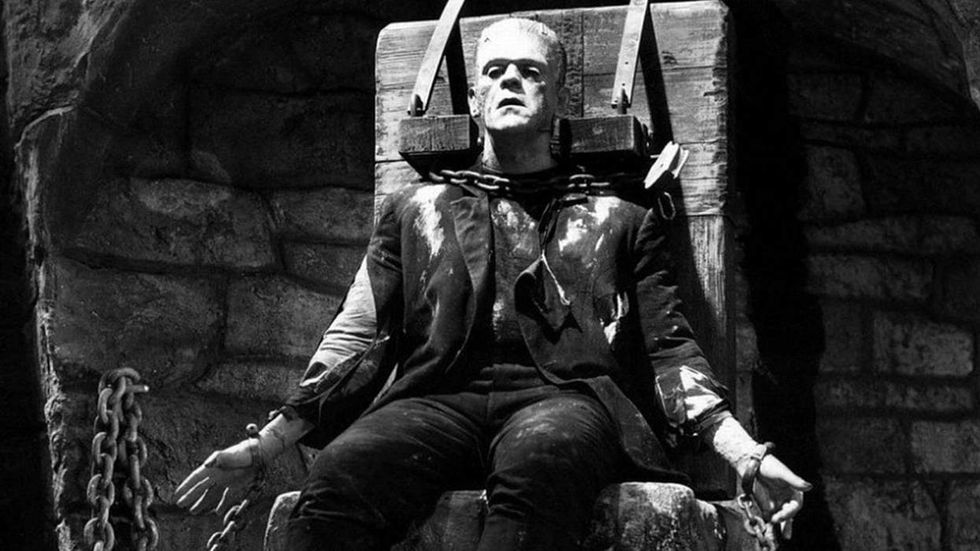The real monster of 'Frankenstein' was never the creature
Frankenstein has always been misunderstood. Most people see the creature and call him the monster, but the real horror is not in the stitches of his body. It is in the arrogance of the man who created him.Victor Frankenstein abandoned what he brought to life and, in that act, he became the true monster. It is a lesson we keep returning to. Monsters are not always the ones who look frightening. Often they are the ones who turn away from responsibility, who refuse to love what they have made, who choose power over compassion.That is where the real terror lives.For queer readers, Frankenstein carries an even deeper resonance. Mary Shelley wrote at a time when queerness was unspeakable, when desire outside the boundaries of marriage and reproduction had to be hidden in metaphors and shadows. Her story is drenched in longing that cannot be spoken aloud, in intimacy disguised as monstrosity. The creature is not only abandoned but forbidden, existing outside society's rules and looking in through the glass at lives he will never have.This is why queer writers, scholars, and readers have long read Frankenstein as a coded story of forbidden desire. The creature's yearning for companionship, his demand for a mate, his rage at being denied, all echo the experience of living in a world where love itself is marked as dangerous. Shelley's prose vibrates with suppressed intimacy, turning the monster into a mirror for everyone who has been told their passion makes them inhuman.The brilliance of Frankenstein is that it resists easy answers. Shelley refuses to let us place all the blame on the creature or all the guilt on Victor. Instead, she shows us how cruelty is born from rejection. The monster is violent because he is unloved. He is terrifying because he has been made to live without tenderness. In this, Shelley anticipated a truth that LGBTQ+ people know all too well. It is society's rejection, not identity itself, that produces despair and rage.The novel is also about creation without care, about bringing something into the world and then denying responsibility for it. This makes it not just a story about one man and his creature, but about culture itself. How many times has society created outsiders through laws, religion, and stigma, only to then call them monsters for refusing to disappear? Shelley's work subtly addresses that hypocrisy, and in doing so, she made one of the first great queer coded texts of horror.Today, in an era where LGBTQ+ rights are once again under attack, Frankenstein feels more relevant than ever.The creature's cry, "I am malicious because I am miserable," rings with the ache of every marginalized person forced to live in the shadows. Shelley reminds us that monstrosity is not a condition of being different, but a condition imposed when love and acceptance are denied.This is why Frankenstein continues to speak to queer readers. It is a story of loneliness, of forbidden intimacy, of rage born from rejection. But it is also a story of truth-telling, a reminder that the real monsters are not those who live on the outside but those who lack compassion.In the end, Shelley gave us more than a Gothic tale. She gave us a way to understand ourselves, our history, and our place in the world. And in that sense, Frankenstein is not just a horror story. It is a queer story.Steven LaChance is an author whose work blends horror, memoir, and cultural analysis, often exploring the intersections of trauma, identity, and the supernatural. He writes regularly about literature, history, and the queer resonances of horror.Voices is dedicated to featuring a wide range of inspiring personal stories and impactful opinions from the LGBTQ+ community and its allies. Visit Out.com/submit to learn more about submission guidelines. We welcome your thoughts and feedback on any of our stories. Email us at voices@equalpride.com. Views expressed in Voices stories are those of the guest writers, columnists, and editors, and do not directly represent the views of Out or our parent company, equalpride.




